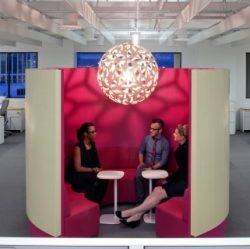February 17, 2017
CIPD calls for more ethical approaches to pay and reward 0
 The CIPD and the High Pay Centre have launched a formal partnership to advocate fairer and more ethical approaches to pay and reward. Together they are calling for a major re-think of corporate governance to improve CEO pay transparency and ensure boards recognise their broader responsibility towards the workforce when decisions on executive pay and business investment are made. In their joint response to the Government’s green paper on corporate governance, which seeks views on how to curb excessive CEO pay and boost employee voice at board level, the CIPD and High Pay Centre point out that if FTSE 100 CEO pay continues to increase at the same rate for the next 20 years as it has for the last two decades, the average ratio between a CEO and average pay would increase from about 129:1 to more than 400:1. The CIPD chief executive Peter Cheese argues in the report that current levels of executive pay undermine both trust and sustainability and making small adjustments to current system isn’t the right approach.
The CIPD and the High Pay Centre have launched a formal partnership to advocate fairer and more ethical approaches to pay and reward. Together they are calling for a major re-think of corporate governance to improve CEO pay transparency and ensure boards recognise their broader responsibility towards the workforce when decisions on executive pay and business investment are made. In their joint response to the Government’s green paper on corporate governance, which seeks views on how to curb excessive CEO pay and boost employee voice at board level, the CIPD and High Pay Centre point out that if FTSE 100 CEO pay continues to increase at the same rate for the next 20 years as it has for the last two decades, the average ratio between a CEO and average pay would increase from about 129:1 to more than 400:1. The CIPD chief executive Peter Cheese argues in the report that current levels of executive pay undermine both trust and sustainability and making small adjustments to current system isn’t the right approach.






 Amos Tversky and Daniel Kahneman introduced the concept of Loss Aversion in 1984, highlighting people’s tendency to strongly prefer avoiding losses to acquiring gains. Most studies suggest that losses are twice as powerful, psychologically, as gains. Lose £100 and we will feel a remorse that easily outweighs winning £100. In a similar fashion we find it very hard to see future positives when confronted with short term loses. We understand easily what we have lost but cannot imagine what there is to be gained. Furthermore, as Frederic Bastiat wrote in an 1850 paper, “That Which is Seen, and That Which is Not Seen”, man has a tendency to “pursue a small present good, which will be followed by a great evil to come, rather than a great good to come, at the risk of a small present evil”. Put these together and it is no wonder that, by and large, the future of work, corporate real estate and the workplace is so widely misunderstood.
Amos Tversky and Daniel Kahneman introduced the concept of Loss Aversion in 1984, highlighting people’s tendency to strongly prefer avoiding losses to acquiring gains. Most studies suggest that losses are twice as powerful, psychologically, as gains. Lose £100 and we will feel a remorse that easily outweighs winning £100. In a similar fashion we find it very hard to see future positives when confronted with short term loses. We understand easily what we have lost but cannot imagine what there is to be gained. Furthermore, as Frederic Bastiat wrote in an 1850 paper, “That Which is Seen, and That Which is Not Seen”, man has a tendency to “pursue a small present good, which will be followed by a great evil to come, rather than a great good to come, at the risk of a small present evil”. Put these together and it is no wonder that, by and large, the future of work, corporate real estate and the workplace is so widely misunderstood.














 Global law firm Osborne Clarke has released its fourth
Global law firm Osborne Clarke has released its fourth 









July 4, 2016
New office market briefing remains cautious about impact of potential Brexit 0
by Mark Eltringham • Comment, Company news, Knowledge, Property